It was a joyful week with a misty-eyed ending. Karen Rosasco was here to teach her last workshop on the road. Karen taught her first workshop with us in 2007 and has taught every year since 2009. Karen has been coming to the Hudson River Valley Art Workshops as a student since the early 1980s! So it was definitely with misty eyes we bid farewell to Karen on the last day of the workshop. Karen, formerly of New York, is now making her home in Virginia and will still be teaching but only locally to her home and also private lessons out of her home studio. You can learn more about this on Karen’s website. Enjoy this glimpse into the activity and creativity of the 5 days of Karen’s workshop. 
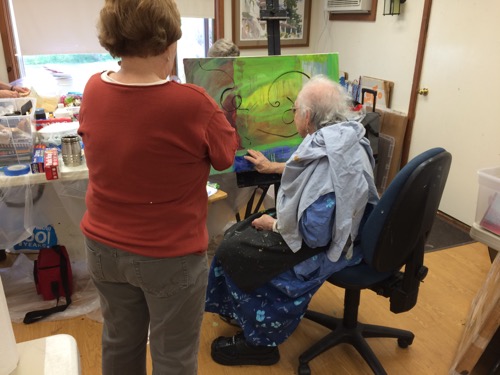

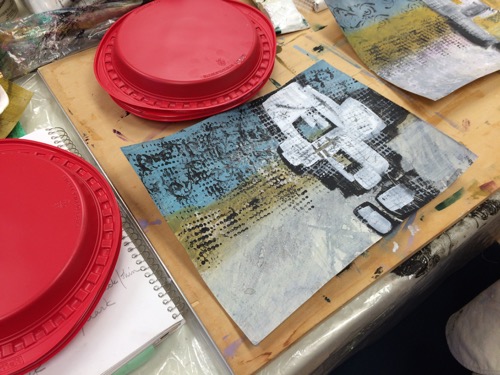
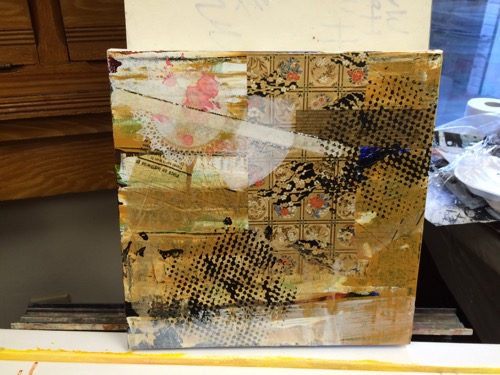
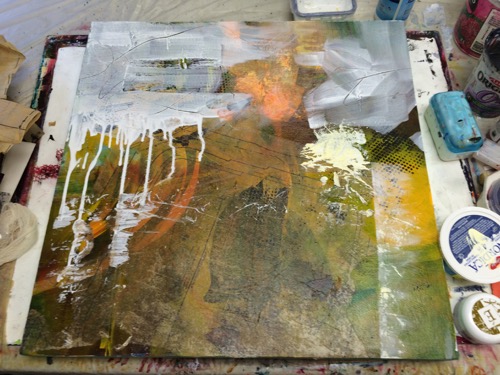
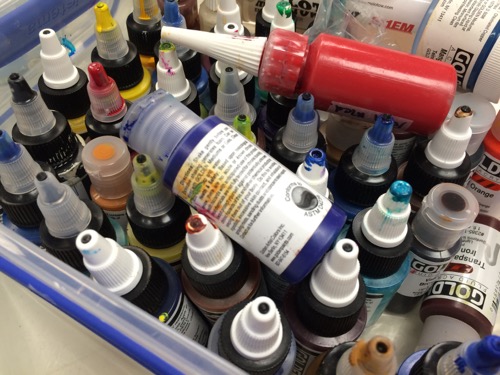



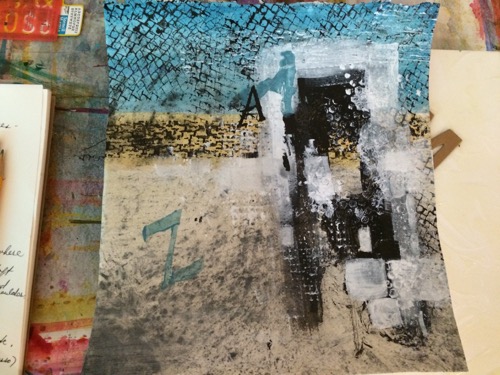
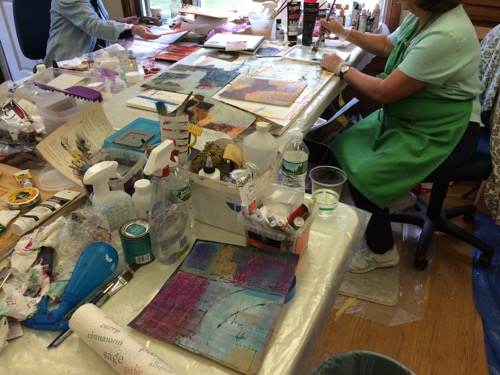




This is the Chili Verde that was served one of the nights as the alternative dish for the vegetarians. Many requested the recipe, so I’ve added it to our recipes page. 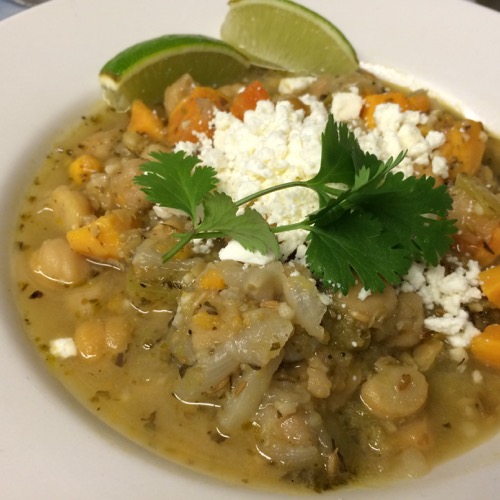
The grounds of the inn are looking lovely and the weather was beautiful all week, making the lawns a perfect place for spreading out painting to dry or when experimenting with a particular messing technique! 
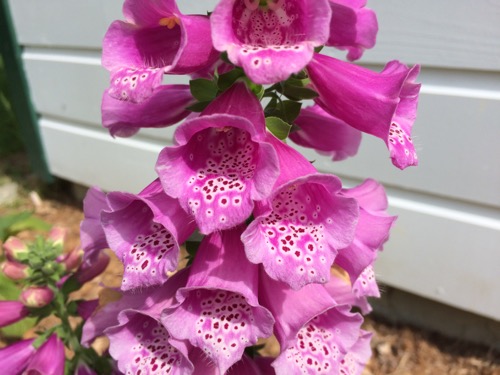
Chili Verde Recipe
June 27, 2016

Chili Verde
Loved by vegetarians and non-vegetarians alike! Also gluten-free! Ingredients:
- 1/4 cup olive oil
- 1 cup chopped sweet onion
- 1 8-oz red or Yukon gold potato, peeled, and cut into 1/3-in cubes
- 1 8-oz sweet potato, peeled, and cut into 1/3-inch cubes
- 2 TBS of chopped garlic
- 2 large cubano peppers, stemmed, seeded: 1 diced and 1 cut into 4 strips
- 2 TBS dried oregano
- 1 TBS brown rice flour
- 2 tsp cumin seeds
- Kosher salt and black pepper
- 1 28-oz can of hominy with juices (you can substitute 2 15-oz cans of chickpeas with juices)
- 1 cup vegetable broth
- 1 7-oz can diced mild green chiles
- Garnishes, such as crumbled feta cheese and lime wedges
Directions: Heat the oil in a heavy, large pot over medium heat. Add the onions, potatoes, yams, garlic, and cubanos. Cover and sweat until the onions are tender, stirring often to prevent browning, about 8 minutes. Mix in the oregano, flour, cumin, 1 teaspoon salt and 1/2 teaspoon black pepper. Add the hominy (or chickpeas) with the juices and the broth and bring the chili to a simmer. Place the green chiles in a processor. Using tongs, transfer the tips of the cubano peppers from the pot to the processor; blend just until smooth. Scrape the chile sauce into the pot. Cover and simmer the chili 20 minutes. Uncover and simmer until the potatoes and yams are tender and the chili is reduced to the desired consistency, stirring often, 20 to 25 minutes longer. Season with more salt and pepper, if desired. Ladle the chili into bowls and serve with garnishes. Serves 4 to 6.
Watercolor Landscapes with Don Andrews
June 13, 2016
“Just a brief word of praise for Don’s Watercolor Workshop. He took a different approach in sharing information making the class move fast and was very enjoyable. I came home with ideas and thoughts eager to put to practice.” – Bonnie K.
Have you read “Rough Sketches” by Don Andrews (A very funny book)? If you have, you understand what a fun and informative teacher Don is. He can keep everyone entertained and working hard all day! 

Don presented lots of demos with clear, easy to understand processes to make each artist successful. 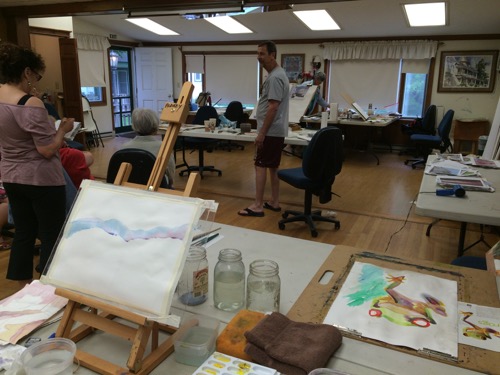
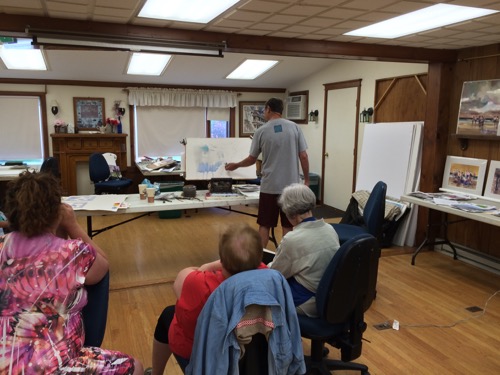 Besides the fun in the workshop, we got a nice shipment of new art supplies and tools for our shop.
Besides the fun in the workshop, we got a nice shipment of new art supplies and tools for our shop. 
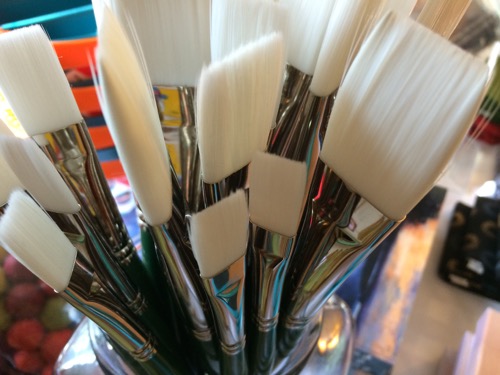 There were also plenty of lovely sights around the inn grounds. It is peony season at the moment.
There were also plenty of lovely sights around the inn grounds. It is peony season at the moment. 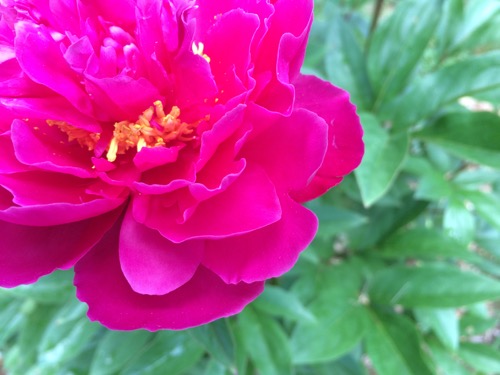
Interview with Valerie Goodwin: An Architect Creates Complex Art Quilt Maps
June 9, 2016
Valerie S. Goodwin R.A. is an architect and artist who creates fiber art inspired by realistic and abstract imagery of maps. Her work is noted for its use of color, emphasis, and line and density.
We look forward to welcoming Valerie to the Hudson River Valley Fiber Arts Workshops December 4 to 10, 2016: she will teach The Complex Composition Workshop, using techniques of collage, layering, transparency, and improvisation.

How long have you been teaching and what got you started teaching?
I have been teaching architectural design for about 22 years and fiber art workshops for over 10 years. I think both go hand in hand and inform each other. I got interested in quilting through teaching architecture when I read an article about how a faculty member used traditional quilting blocks as a way to start designing a floor plan, in this case it was a Museum for Quilts. Long story short — the idea launched my interest in fiber art.
What is your favorite part about teaching?
My favorite part is that “light bulb” moment! You know when you see that a student appreciates and gets what you are teaching.
What would you tell your prospective students are three best reasons for taking a workshop?
Excellent question!
First of all my courses stress “design thinking”. I want every student to develop their own work in their own voice. My goal is not to create “mini-me’s”.
Secondly, teach the techniques first, so each student can focus on the design after they have experience with the how-to portion of my workshops.
I have over 20 years of experience teaching design and conducting critiques. I love to provide feedback and critique! But I do it in a nurturing way. My goal is to help each student clarify their design intent and I try to give my critique through that lens.
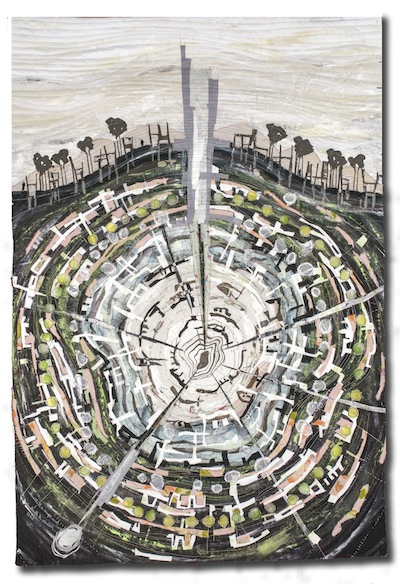
What are you currently working on in your own art?
Lately I have been experimenting with using laser cutting technology in my work. You can read more about it in an upcoming article that I wrote for the SAQA journal. I am still passion about creating fiber art maps but, from a new and exciting perspective.
Is your work represented in galleries, and if so, what hints would you give to artists looking for gallery representation?
My work is in many private collections but I do not currently have gallery representation. This is something I would like to pursue one day when I retire from university teaching and have time to create more work and to promote myself.
Do you sell your work in any online gallery?
Yes, I have work on Artful Homes.

What is your favorite art quote?
When an architect (artist) is asked what his best building (work of art) is, he (she) usually answers, “The next one.” – Emilio Ambasz
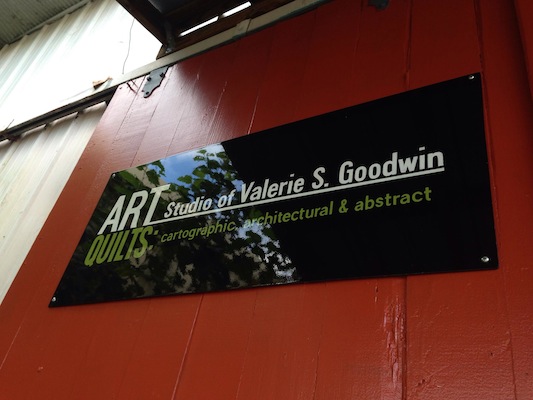
Describe your studio.
My studio is in a funky artist warehouse district located next to the city’s railroad track and positioned between 2 university districts. It is my oasis, a place where I can get away from it all and just CREATE! An added benefit is that I share it with another artist. It is a great way to bond with another artist and learn from another artistic point of view.

Name five of your “can’t do without” tools/products.
In no particular order:
Epilogue Laser Cutter
Misty Fuse
Acrylic Paint + Fabric Medium
Sewing machine
Computer
Too Much Fun with Alcohol Inks and Cathy Taylor!
June 6, 2016
What a prolific group this was in Cathy Taylor’s alcohol inks workshop. In just one day the studio was filled with gorgeous array for color! For the most part people worked free and abstract, but a little representation landscapes also appeared. Meagan’s outfits were just as colorful as her paintings! 

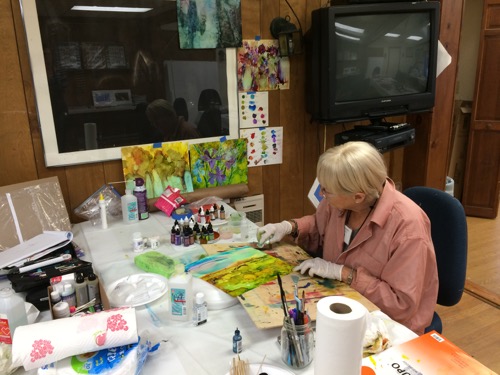
Sara was our overachiever for the class. Luckily she was prepared and brought several portfolio books to store all of her paintings in when they were dry. 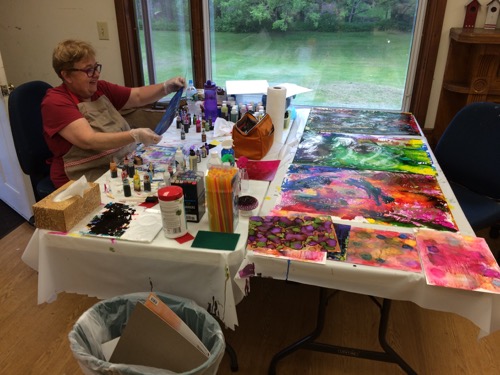


These were some examples of Cathy’s work. 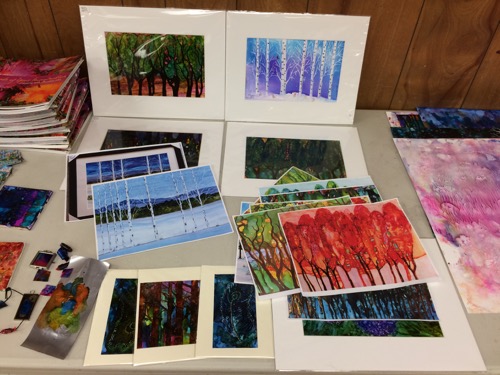
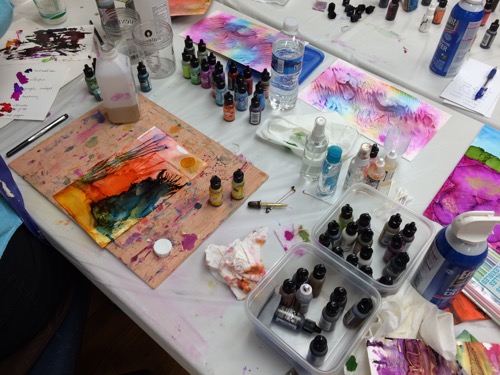
All Prima Figures with David Shevlino
June 2, 2016
This past week David Shelving was here to teach a 5-day workshop on Alla Prima Figures. There was a mix of students, some using oils, some using acrylics, and one using water-based oils. 
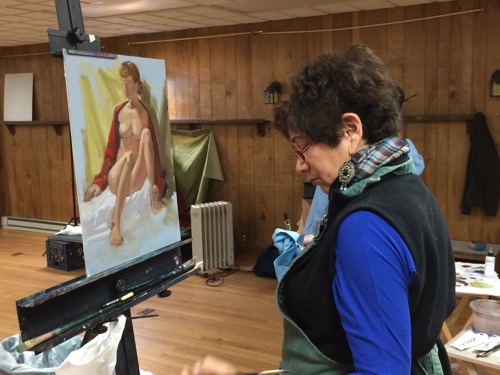


This week we have a 3-day alcohol inks workshop with Cathy Taylor and next week a studio watercolor workshop with Don Andrews (there is still time to sign up for this workshop!)